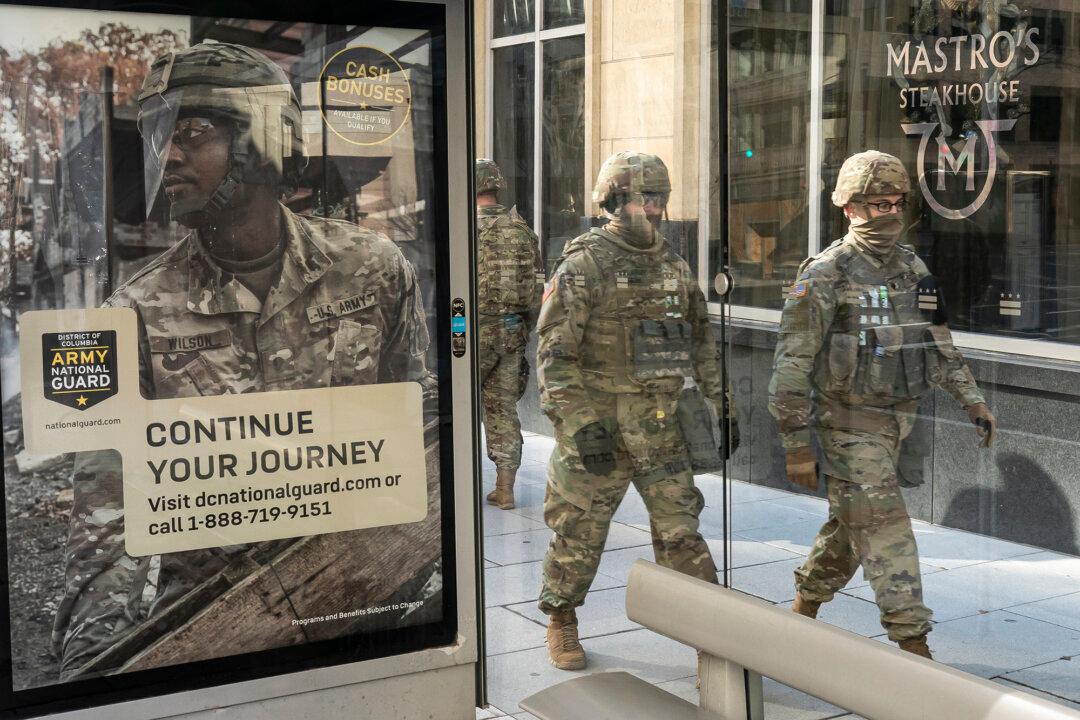National Guard members who refuse COVID-19 vaccinations will no longer be able to participate in training and risk having their pay withheld, U.S. Defense Secretary Lloyd Austin revealed Tuesday.
In a memo to military officials (pdf), Austin stressed that vaccination is “essential to the health and readiness of the force,” and that the secretary of the Army and the secretary of the Air Force, in coordination with the under secretary of defense for personnel and readiness and the chief of the National Guard Bureau, should “establish policies and implementation guidance to address the failure to maintain this military medical readiness requirement by members of the non-federalized National Guard who remain unvaccinated.”




